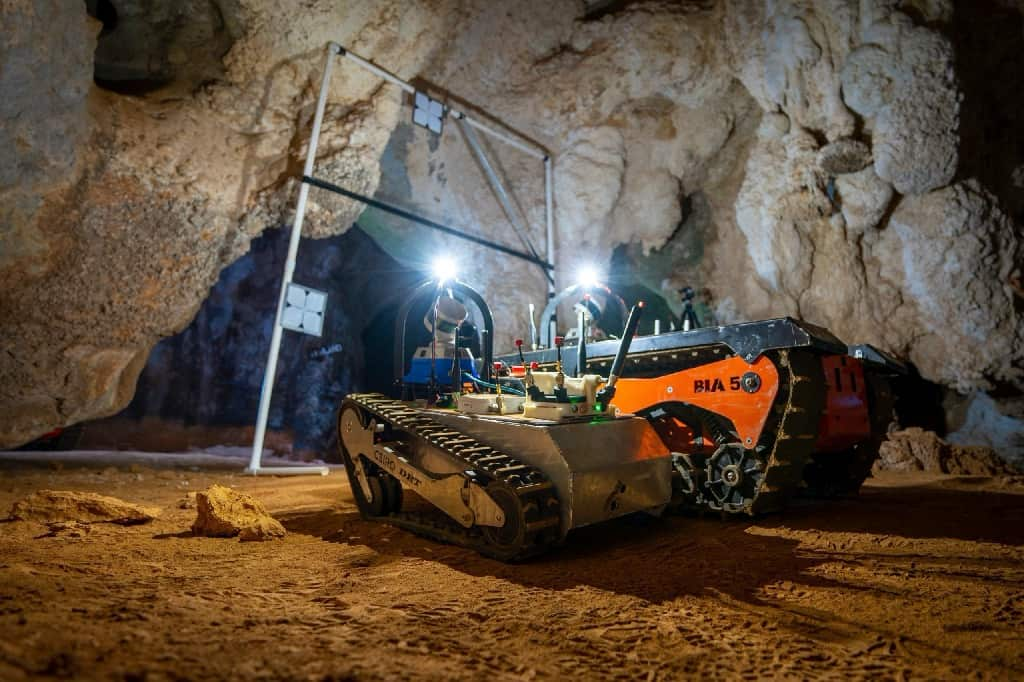An Australian robotics team will test itself against the world's best as it explores a series of underground courses built inside a massive cave in the US.
The six autonomous robots from CSIRO's digital research arm Data61 must locate and report back on items and environmental conditions in three courses built inside the Louisville Mega Cavern in Kentucky.
"In the world of robotics, these challenges are like our Olympics," CSIRO group leader Navinda Kottege said.
Experts from around the world have spent three years "pushing the boundaries of autonomous robotic technology" as part of the Subterranean challenge, run by the US Defense Advanced Research Projects Agency.
"To the best of our knowledge, this is the first time any Australian team has made it to a DARPA Challenge final, and we're very proud to showcase Australia's capabilities in this area on the world stage," Dr Kottege said.
Teams are eliminated each year with only eight remaining to contest the 2021 grand final.
The challenges involve locating models representing lost or injured humans, backpacks, or phones, as well as variable conditions such as pockets of gas.
CSIRO's Australian team members will appear at the event via telepresence, while US-based representatives and partners Emesent and Georgia Tech will be on the ground.

Breakthroughs discovered through the DARPA Challenge have previously pushed forward advancements in mining safety and efficiency, and have potential in agriculture and manufacturing.
All robots are equipped with hardware designed and developed by CSIRO's Data61, including integrated perception technology for highly accurate mapping, object detection, Bluetooth and wi-fi detection.
The winner will receive $US2 million ($A2.7 million) to conduct further research and development, with second place awarded $US1 million and third $US500,000.
CSIRO's Data61 placed fourth in the previous challenge to secure its place in this grand final.
The DARPA Subterranean Challenge will run from September 21-23.

